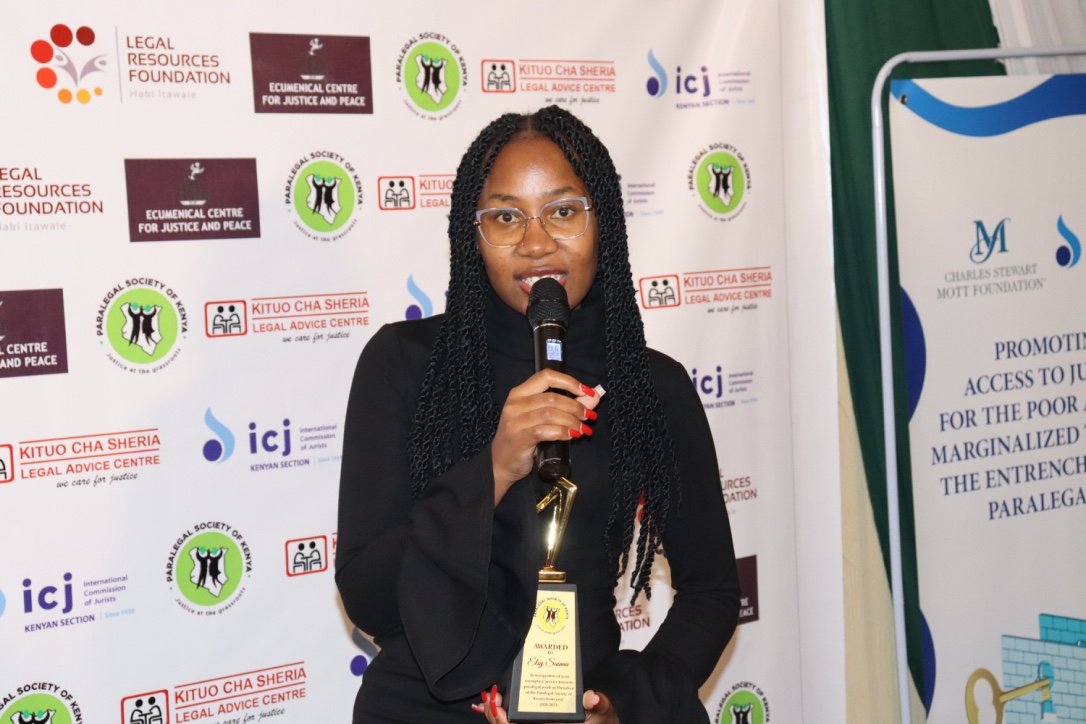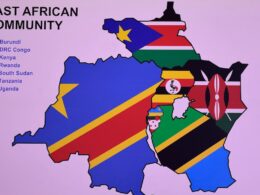By Shukri Wachu
NAIROBI,Kenya – Whether its in the often quite corridors of justice or among marginalized communities across Kenya conducting sensitization campaigns,Damaris Kemunto has emerged as one of the prominent figures leading the charge to abolish the death penalty.
As an Advocate of the High Court and a gender rights enthusiast, Ms. Kemunto knows all to well that in an era marked by societal challenges, navigating the intricate web of reforms and advocacy becomes paramount for progress, and though embracing change is often met with skepticism,fostering understanding is key to convincing individuals of its necessity.
Growing up in a community where inequality was as palpable as the air she breathed, Kemunto’s early years were shaped by a stark reality. The stark contrast between the privileged and the marginalized fueled her determination to dismantle the barriers that trapped so many in a cycle of injustice.
“I grew up in community where women suffered cultural and societal injustices with no one to stand up for their rights.In addition,these injustices culminated to diminishing the voices of women in my community. This then motivated me to pursue a career in law so as to cultivate a legal perspective to advocate for the rights of women,” said Kemunto.
As a Programme Officer at the International Commission of Jurists (ICJ Kenya), Kemunto is part of a team spearheading efforts to abolish the death penalty in Kenya. In 2017,the Supreme Court declared the mandatory nature of the death penalty unconstitutional leading to the creation of a taskforce to review it.
“The Death Penalty is a very emotive topic that sparks debates on both sides of the drive, positively and negatively. Most likely positively to families of victims and negatively to families of perpetrators. Appreciating that the right to life is universally enshrined in both domestic and international instruments, the basic principle is that this right should be safe guarded,” she said.
A bill,Penal Code Amendment 2023 presented by Ugenya MP Opiyo Wandayi has already been introduced before parliament,with significant input from ICJ Kenya.The proposed law seeks to amend the Penal Code Cap 63, specifically sections 40, 60, 204, 296 and 297, by deleting the word ‘death’ where it appears and substituting it with ‘life imprisonment.
The last time Kenya executed the death penalty was in 1987 when individuals convicted of treason, in relation to the1982 attempted coup were hanged.
The youthful Advocate of the High Court noted that the death penalty,is regarded as degrading form of punishment that amounts to torture.Its effects are far reaching, from physical to psychological torture. To this end, she is part of a multi-stakeholder approach that vibrantly advocates for the deletion of the capital punishment in our laws.
“These forms of discrimination have graduated in the criminal trial process where women accused of offences attracting the death sentence suffer intersectional discrimination from the point of arrest to conviction and sentencing,”
During sentencing in regards to women accused of murder,the courts failed to consider instances of abuse, particularly physical or psychological abuse and as such deprived women their right to fair trial.
“Surprisingly, this was a very gray area, thus it sparked my interest in advocating for the recognition of the intersectional discrimination these women face in the judicial system,”
To better understand this emerging dimension,Kemunto has conducted regular prisons visits at the Langata Women’s and Malindi Women’s Prison conducting interviews with women on death row. These conversations have been featured on ICJ Kenya’s, the Jurist’s Take podcast which she hosts, documenting, inmates’s experience with the judicial process from the point of arrest to conviction.
“For instance,I interviewed one woman, and from her narration, I noted a violation of her rights during arrest and trial.Most significant was that, she did not get access to full legal representation throughout trial. Noting that she was accused of a capital offence, access to legal representation is paramount during trial, the lack of it contributes to violating her right to fair trial,”
Women in death row are further said to be in excruciating mental pain as the psychological torture they undergo as a result of being isolated from other prisoners significantly contributes to their deteriorating mental health.
The advocacy on the gendered approach to the abolition of the death penalty and with reference to the landmark court decision in Republic V Truphena Ndonga Aswani provided insights into how the judicial system treats women.
The court however revealed that the accused, in self-defence, hacked the deceased several times using a machete.
It is worth noting that although the accused was revealed to have murdered her husband in self-defence,the probation report and mitigation in court indicated she was a victim of domestic violence and nearly died from the frequent beatings administered to her.Noting the effects of prolonged GBV on the accused, the court issued a non-custodial sentence to enable the accused access counseling to recover from her traumatic experiences.
“The abolition of the death penalty will contribute to the realization of a series of rights that would reform both the legal system and the society; the right to life, right to dignity of a person and the freedom from torture and cruel, inhuman or degrading treatment or punishment,” said Kemunto.
In 2022, while Kenya granted 12 commutations and five exonerations, 79 persons were sentenced to death. At the end of 2022, 656 persons were under the death penalty. Currently, 2 women are on death row.
As she navigates the legal labyrinth, Kemunto seeks to reshape public opinion and sway policymakers toward a more humane and equitable approach to justice.In a poignant plea, she urges society to reconsider the morality and efficacy of a practice she contends has no rightful place in a civilized legal system.
“As a young female advocate, and any other young professional, our voices have often been disregarded in contentious human rights issues.I have nevertheless braised these challenges and focused on notable milestones that have shaped my views in the legal system to a greater extent,” said Kemunto.
The young advocate while advising young lawyers to always strive for excellence, is now seeking to expand her legal horizon by focusing on other social justice issues such as the intersection of climate change and gender-based violence on women and girls.
The Author,Damaris Kemunto is a Programmes Officer at ICJ Kenya.
The article was first published on the People daily.











